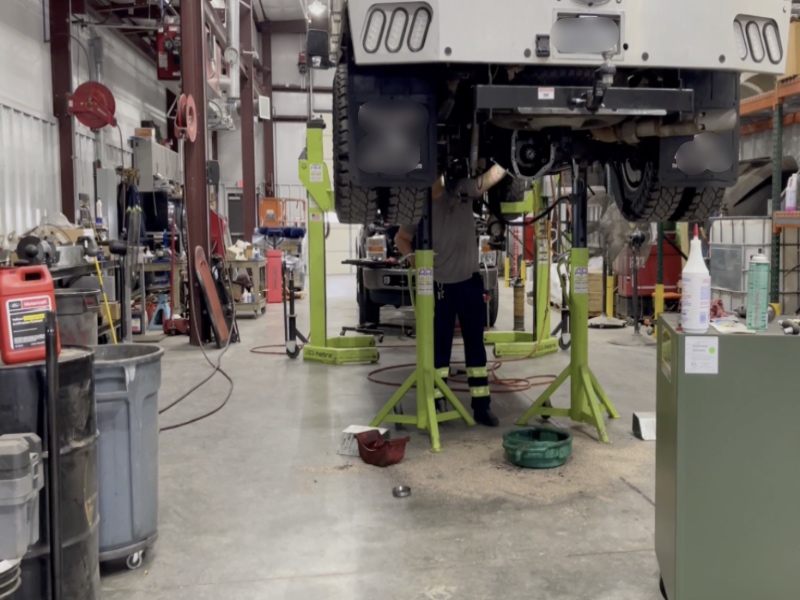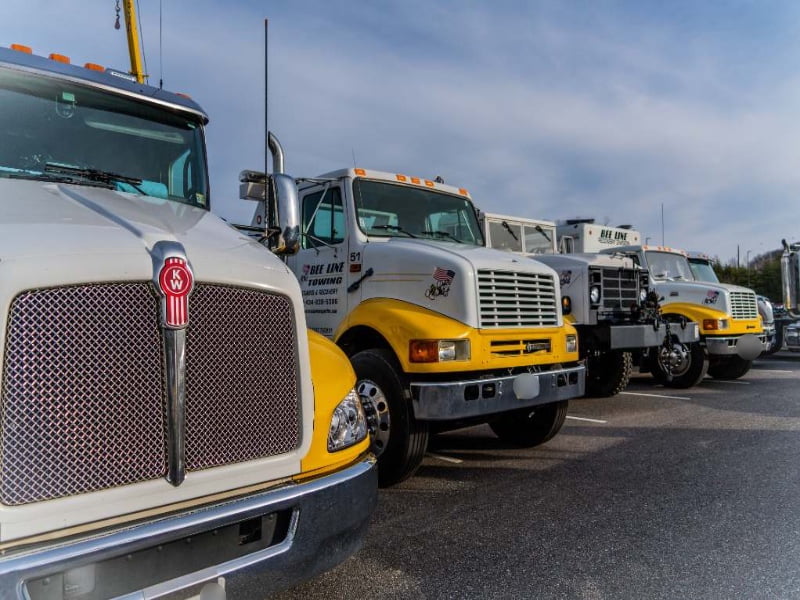Every Fleet Has Its Own Story
When we manage a fleet, we’re dealing with tight schedules, drivers’ livelihoods, customer demands, and bottom lines. That’s why the idea of using a generic fleet maintenance plan for every diesel truck just doesn’t hold up. From our experience providing Lynchburg diesel truck repair, we’ve seen firsthand how different each fleet can be. What works for one operator might cause problems for another.
So why do so many companies still settle for cookie-cutter plans? It often comes down to convenience, but that convenience can end up being costly. Let’s break down why customized maintenance is a smarter long-term investment and how it directly impacts uptime, safety, and repair costs.

Trucks Don’t Work the Same Way
Not every diesel truck runs the same routes or hauls the same kind of loads. Some face daily city traffic, while others clock long hours on the interstate. These differences affect wear and tear significantly. A standardized maintenance checklist might overlook what matters most for your operation.
Some customers might come in for Lynchburg diesel truck repair with a one-size-fits all plan. Their plan doesn’t consider mountain routes, extreme temperatures, or stop-and-go schedules. The result? Premature brake wear, engine strain, and downtime that could’ve been avoided with a more tailored approach.
Customized Lynchburg Diesel Truck Repair & Maintenance Looks Like This
We build maintenance schedules around how your trucks work, not just what they are. Here’s what a good plan should include:
- Mileage vs. engine hours: Some fleets idle more than others, so engine hours matter more than mileage.
- Climate adjustments: Trucks operating in hot or icy regions need extra checks—like coolant systems and battery inspections.
- Load type: Heavier loads stress suspension and brakes faster. Light-load city fleets may need more tire monitoring due to frequent stops.
- Age of the vehicle: Older vehicles need closer inspection cycles to avoid costly surprises.
By adjusting maintenance plans based on these real-world factors, we help reduce the frequency of emergency calls for Lynchburg diesel truck repair and keep vehicles in rotation longer.
The Real Cost of Generic Plans
When a fleet goes down, it’s not just the tow bill. There’s a driver waiting, a client losing faith, and deliveries being delayed. One-size-fits-all plans often delay small repairs until they become major ones. We’ve pulled more than a few trucks off the shoulder of Route 29 or the bypass because a minor warning light got ignored during a generic 30-point inspection.
And then there’s the issue of overlapping services. We’ve seen trucks brought in for oil changes two weeks after already having one—because the schedule said so. That’s wasted time, money, and labor.
On the other end of the spectrum, some repairs get skipped altogether because they weren’t on the checklist. That’s when calls for our Lynchburg diesel truck repair service turn urgent—and expensive.
What Fleet Managers Should Look For
We recommend fleet managers ask a few key questions when reviewing or creating a maintenance plan:
- Are inspections based on engine hours, not just miles?
- Does the plan account for the operating environment (mountains, heat, road salt)?
- Is there a method for adjusting service intervals as trucks age?
- How are brake and suspension systems evaluated under load?
- Is data from past breakdowns used to tweak the plan moving forward?
A fleet-specific plan doesn’t mean more work—it means smarter work. And smarter work means fewer unexpected visits to our Lynchburg diesel truck repair shop.

Let Bee Line Transport Handle Your Lynchburg Diesel Truck Repair
At Bee Line Transport, we’ve spent years working with operators across Virginia, and one thing is always true: the more you understand your own fleet, the better your maintenance decisions become. No two trucking companies operate exactly alike, and their trucks shouldn’t be treated that way.
Tailored maintenance is how we keep fleets dependable and road-ready. It saves money, protects drivers, and makes scheduling predictable. So the next time someone hands you a one-size-fits-all plan, ask yourself: “Does this really fit us?” If the answer is no, it’s time to rethink how you manage your service schedule.
Fleet maintenance isn’t about checking boxes. It’s about making the most of every mile—and we’re here to help make that happen through smart planning and reliable Lynchburg diesel truck repair.
